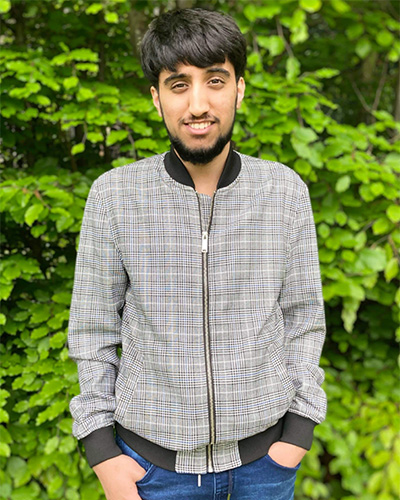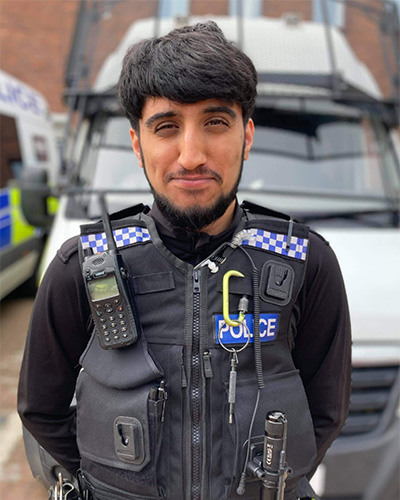Meet Asad – Special Constable in Milton Keynes

Asad has been a Special Constable in Milton Keynes for 2 years; he does this important volunteering role alongside his college studies in Public Services. We spoke to Asad about the role of a special and how he manages his commitments around his academic workload.
How do you juggle your academic commitments and those of being a Special?
We are asked to commit 16 hours a month, but TVP have been very flexible and accommodating around my personal and academic commitments. For example, when I am observing Ramadan my energy levels are lower, so I have done less hours during this time. Similarly, when I need to meet a deadline for an assignment, I may lose a few hours, but the force is supportive and I’m able to make these up during the upcoming months.
What made you want to become a Special Constable?
I have always wanted to become an officer and during my studies whilst I was researching different departments, I came across the Special Constabulary and was inspired to join. I appreciated that as a volunteer I would have the same powers as a regular officer and being able to carry out the same duties but I could base this around my studies.
I also felt it would help me to decide whether to apply full time. I hope to go this route in the future, but I also think it is important that I have the option to become a career special alongside my full time career.
What skills have you gained through being a Special?
My confidence has grown greatly; when you are dealing with the public you need to be confident that you are making the right decisions.
Beyond that, it has really helped my team building and communication skills, building relationships with stakeholders and the public – those are attributes I can take beyond college into any career.
How has it helped your academic studies?
A lot of the work that we study interlinks with being a Special, which can include subjects like forensic psychology, care in custody, serious and organised crime or reflective professional practice. Being a Special, I see that work firsthand and I can apply my knowledge to my academic studies. It is inspiring and motivating to see the theory be put into practice and the positive outcomes of them.

How do you balance college and work?
It can be tricky, but organisation is key; if you stay on top of everything, you can absolutely do both roles. I make sure I have a calendar with all my academic deadlines, and I am open with my college about my police work and commitments. That allows me to plan my shifts accordingly.
What is your relationship like with regular officers?
The regular officers are really understanding and appreciative that this is something we do in our own time. They are also supportive of any training and are willing to help with our development in any way possible. I am currently looking to do attachments to CID and Traffic to develop further whilst allowing me to gain experience within these departments to support future endeavours.
What is the best thing about being a Special?
I get to do a role that I have always wanted to do. Beyond that, the fact that I am helping people is incredibly motivating and rewarding.
What is the importance of having diversity in policing?
Seeing more diversity in policing is encouraging, it is important that we, as officers, can relate to the community we serve. Being an officer from an Asian background I can provide positive reinforcement to the community, by understanding their culture and reducing negative comments or stereotypes. It encourages individuals to confide in the police and trust that the police really are there for all members of the communities. I think points of difference really can make a difference.
Advice for anyone wanting to become a Special?
Research the role, understand the commitment you would be giving and what would be expected to do. A few methods to do this would be to look on the careers page you could also do a ride along. It is a really, great and rewarding job. You meet loads of new friends, gain lots of skills and honestly, it is like a big family. One hundred percent recommend if you are thinking about a career within the police.


 Facebook
Facebook
 Twitter
Twitter
 Linkedin
Linkedin
 Instagram
Instagram